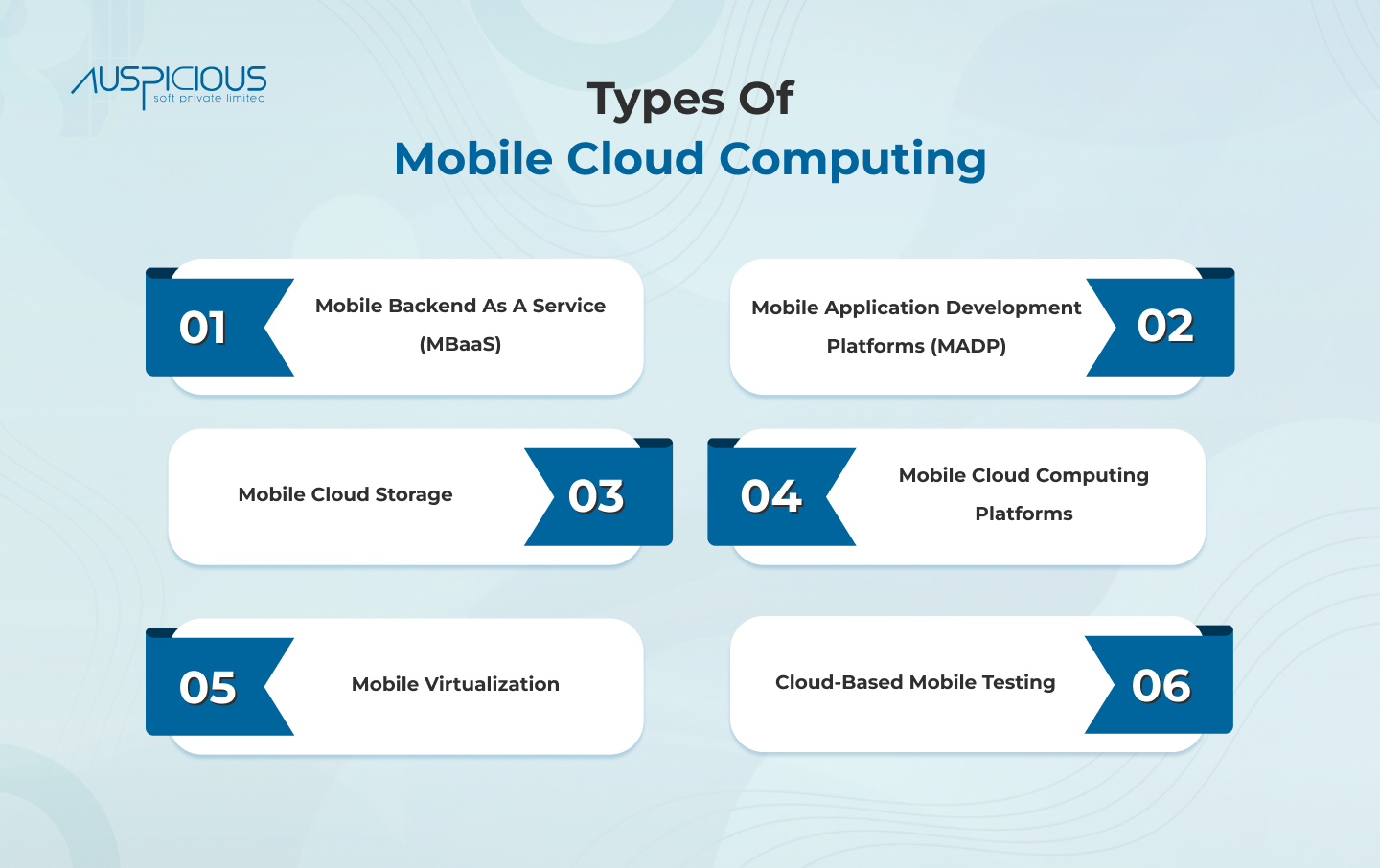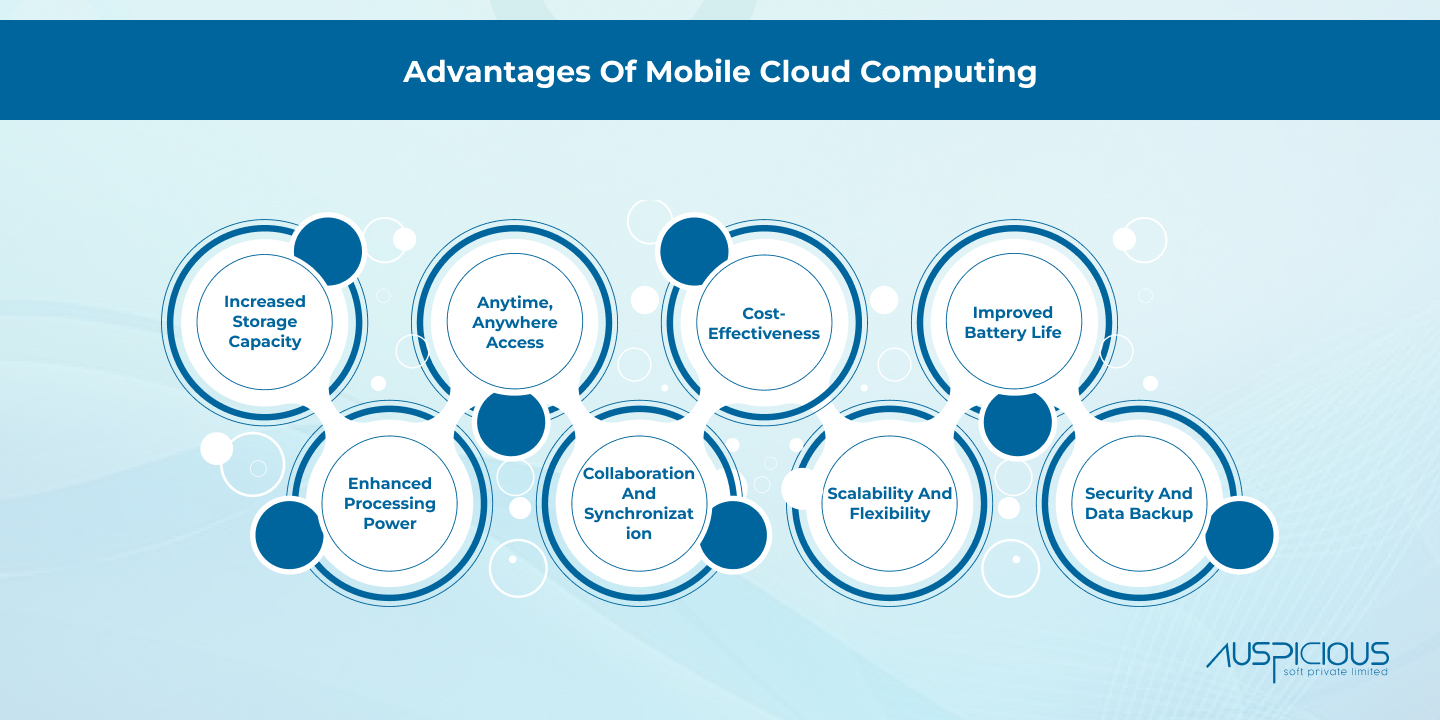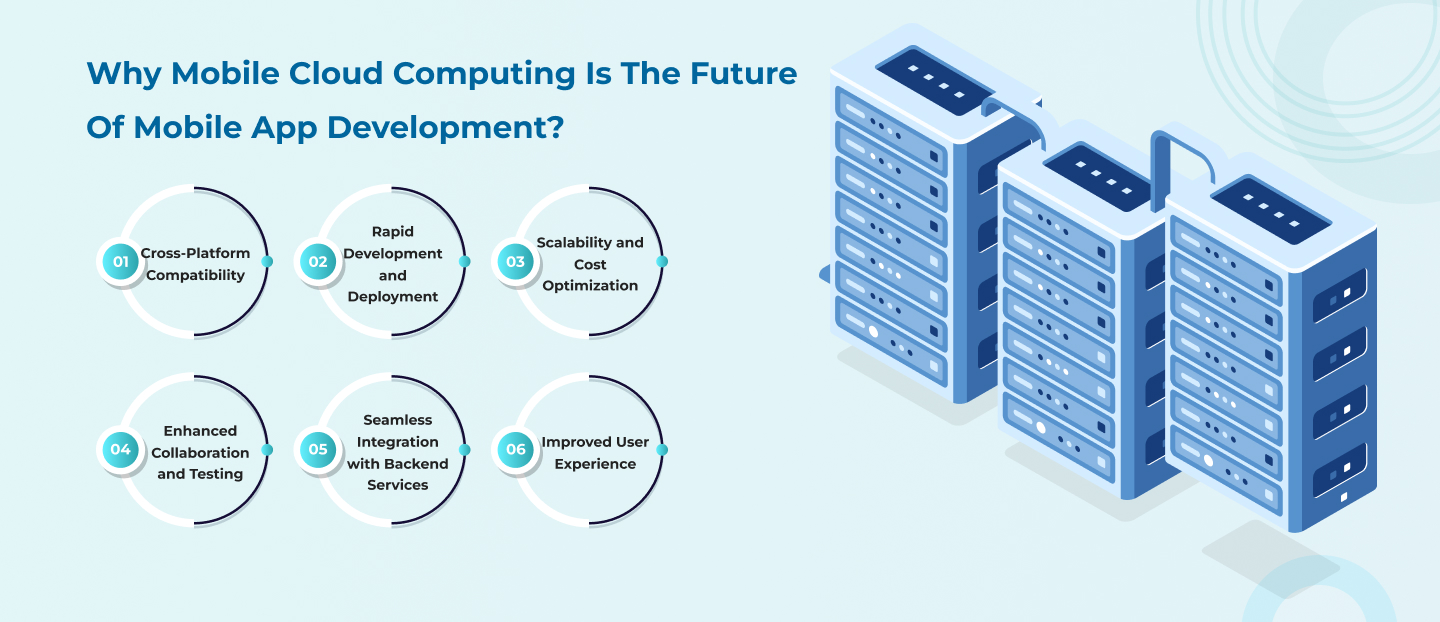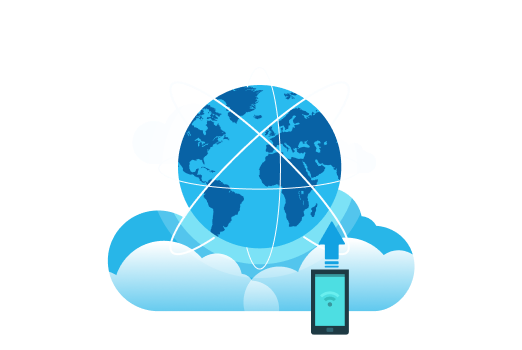What is Mobile Cloud Computing – The Future of Mobile App Development
Mobile cloud computing refers to the integration of mobile devices and cloud computing services to extend the capabilities and functionality of mobile devices. It enables users to access a wide range of services, applications, and data from the cloud using their mobile devices. By offloading resource-intensive tasks to the cloud, mobile cloud computing overcomes the limitations of mobile devices, such as limited storage, processing power, and battery life. It allows for seamless synchronization, data sharing, and collaboration across multiple devices. Mobile cloud computing also enables the development of resource-intensive applications like augmented reality and virtual reality by leveraging the cloud infrastructure. Security and privacy are key concerns, requiring encryption and protection of data transmission between mobile devices and the cloud. Overall, mobile cloud computing enhances the mobile experience by leveraging cloud resources and providing anytime, anywhere access to services and data.

Types of Mobile Cloud Computing
1. Mobile Backend as a Service (MBaaS):
MBaaS provides a cloud-based backend infrastructure for mobile applications. It offers services such as data storage, push notifications, user management, and social network integration. Developers can leverage MBaaS platforms to quickly build and deploy mobile apps without the need to develop and manage the backend infrastructure.
2. Mobile Application Development Platforms (MADP):
MADPs offer a comprehensive set of tools, frameworks, and services to streamline the development and deployment of mobile applications. These platforms often provide features such as code repositories, testing environments, and collaboration tools, enabling developers to build, test, and manage mobile apps efficiently.
3. Mobile Cloud Storage:
Mobile cloud storage allows users to store and access their data in the cloud from their mobile devices. Services like Google Drive, Dropbox, and iCloud offer seamless synchronization, file sharing, and backup capabilities across multiple devices.
4. Mobile Cloud Computing Platforms:
These platforms provide an infrastructure for executing resource-intensive tasks in the cloud, offloading the processing burden from mobile devices. Examples include remote rendering for graphics-intensive applications like gaming, and mobile cloud-based processing for image recognition or natural language processing.
5. Mobile Virtualization:
Mobile virtualization allows multiple virtual machines (VMs) to run on a single mobile device. It enables users to switch between different operating systems or environments within their mobile device, offering flexibility and compatibility for various applications and services.
6. Cloud-Based Mobile Testing:
Cloud-based testing platforms allow developers to test their mobile applications on a wide range of devices and operating systems without the need for physical devices. It provides cost-effective and efficient testing capabilities, ensuring app compatibility and performance across multiple devices.

Advantages of Mobile cloud computing
1. Increased Storage Capacity:
Mobile devices typically have limited storage capacity. Mobile cloud computing allows users to store their data, applications, and files on remote servers, thereby expanding the available storage space. This enables users to access a large amount of data and multimedia content without worrying about device storage limitations.
2. Enhanced Processing Power:
Mobile devices often have limited processing power and may struggle to perform resource-intensive tasks. With mobile cloud computing, complex computations and processing tasks can be offloaded to remote cloud servers that have higher processing capabilities. This allows mobile devices to handle demanding applications and services that would otherwise be beyond their capabilities.
3. Anytime, Anywhere Access:
Mobile cloud computing enables users to access their data and applications from anywhere at any time, as long as they have an internet connection. Users can access their files, documents, and software applications from multiple devices, which provides flexibility and convenience.
4. Collaboration and Synchronization:
Cloud-based mobile applications facilitate seamless collaboration and synchronization among multiple users. It allows users to share and edit documents in real-time, making it easier for teams to work together on projects regardless of their physical location. Changes made by one user are automatically synchronized across all devices, ensuring that everyone has the latest version of the shared content.
5. Cost-Effectiveness:
Mobile cloud computing reduces the need for powerful hardware and storage on mobile devices. Users can rely on cloud servers to handle resource-intensive tasks, eliminating the requirement for high-end devices. This can lead to cost savings for individuals and organizations, as they can opt for less expensive mobile devices while leveraging the cloud’s computing power.
6. Scalability and Flexibility:
Cloud-based mobile applications offer scalability and flexibility, allowing users to scale resources up or down based on their needs. As user demands fluctuate, cloud servers can dynamically allocate resources to handle the load efficiently. This scalability ensures that users can access services and applications without experiencing performance issues during peak usage times.
7. Improved Battery Life:
Offloading resource-intensive tasks to cloud servers reduces the workload on mobile devices, leading to improved battery life. By utilizing the cloud for computations, mobile devices can conserve energy and extend their battery longevity.
8. Security and Data Backup:
Mobile cloud computing offers robust security measures and data backup options. Cloud service providers invest heavily in security protocols, encryption, and access controls to protect user data. Additionally, data stored in the cloud is less vulnerable to loss or damage due to device theft, loss, or hardware failure. Regular backups and redundancy measures ensure that data can be recovered even in the event of a disaster.

Why Mobile cloud computing is the future of mobile app development?
Increased Processing Power: Mobile cloud computing enables mobile apps to leverage the computational power of remote cloud servers. This allows developers to create and deploy resource-intensive applications that can perform complex tasks and deliver high-quality user experiences. By offloading processing tasks to the cloud, developers can overcome the limitations of mobile devices’ hardware and provide users with advanced functionality.
1. Cross-Platform Compatibility:
Developing mobile apps for different platforms (e.g., Android and iOS) often requires separate development efforts, which can be time-consuming and costly. With mobile cloud computing, developers can build platform-agnostic apps that run on the cloud and are accessible from any device with an internet connection. This cross-platform compatibility reduces development efforts and allows developers to reach a broader user base.
2. Rapid Development and Deployment:
Mobile cloud computing enables faster development and deployment cycles for mobile apps. Developers can leverage cloud-based tools, frameworks, and development platforms that offer pre-built components and infrastructure, reducing the need for extensive coding from scratch. Additionally, cloud-based app deployment allows for seamless updates and version control, enabling developers to roll out new features and bug fixes without requiring users to manually update their apps.
3. Scalability and Cost Optimization:
Cloud-based mobile app development provides scalability, allowing apps to handle varying user loads. With cloud resources, developers can easily scale up or down the infrastructure based on user demand, ensuring optimal performance and cost efficiency. The pay-as-you-go model of cloud computing also enables developers to avoid upfront infrastructure costs and pay only for the resources they consume, making it a cost-effective solution.
4. Enhanced Collaboration and Testing:
Mobile cloud computing fosters collaboration among developers and facilitates efficient testing processes. Cloud-based development platforms provide shared environments where developers can collaborate, share code, and work on different aspects of the app simultaneously. Additionally, cloud-based testing services offer a wide range of device emulators and real-device testing options, allowing developers to test their apps on various configurations and screen sizes without the need for physical devices.

5. Seamless Integration with Backend Services:
Mobile apps often rely on backend services such as databases, APIs, and data processing systems. Cloud-based mobile app development simplifies the integration process by providing ready-to-use backend services and APIs. Developers can leverage cloud services for user authentication, data storage, push notifications, and more, reducing the time and effort required to build and maintain the backend infrastructure.
6. Improved User Experience:
Mobile cloud computing allows developers to create apps that offer a rich and immersive user experience. By offloading resource-intensive tasks to the cloud, apps can deliver faster response times, smooth animations, and real-time updates. Additionally, cloud-based storage and synchronization enable seamless data access across devices, enhancing the overall user experience.

